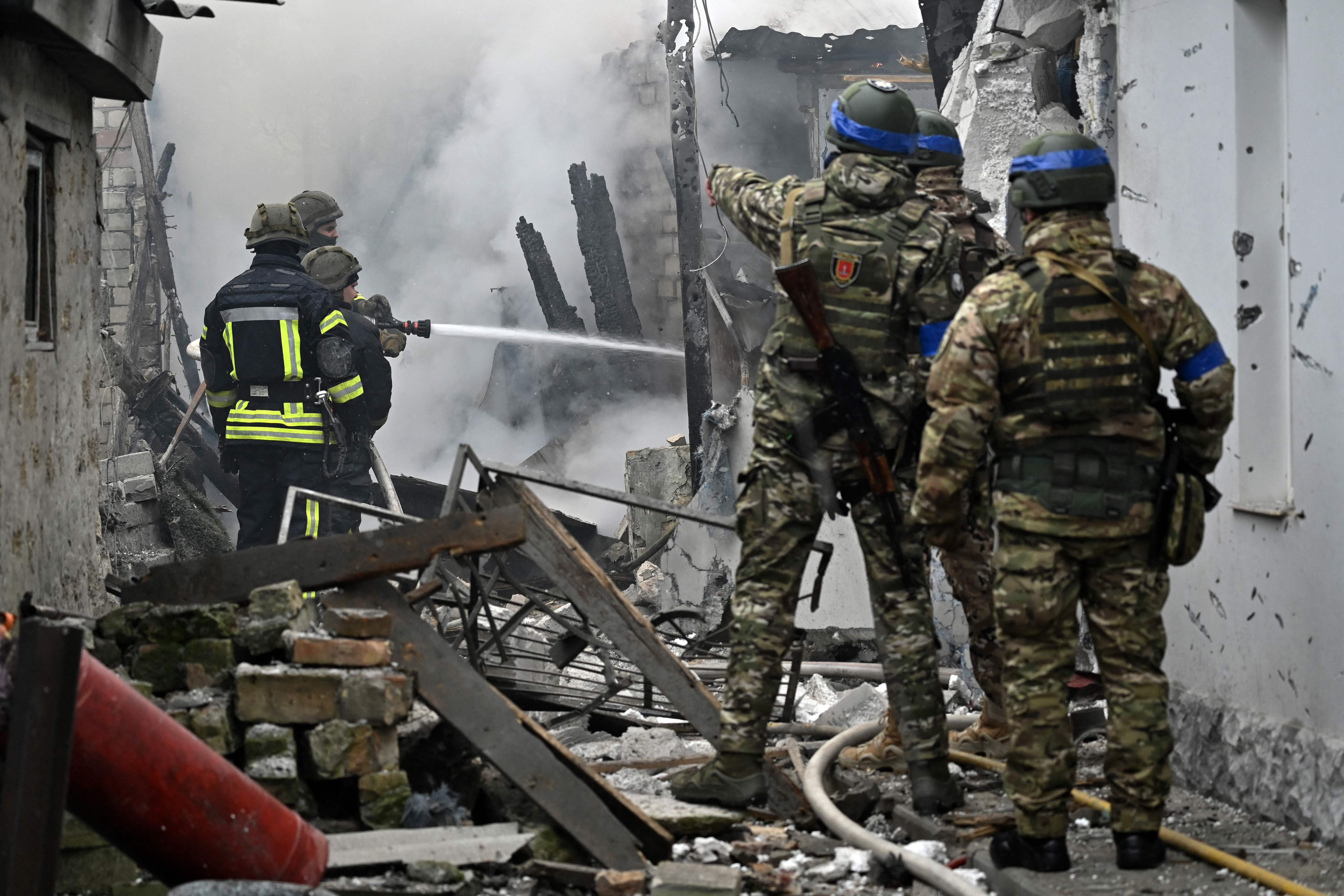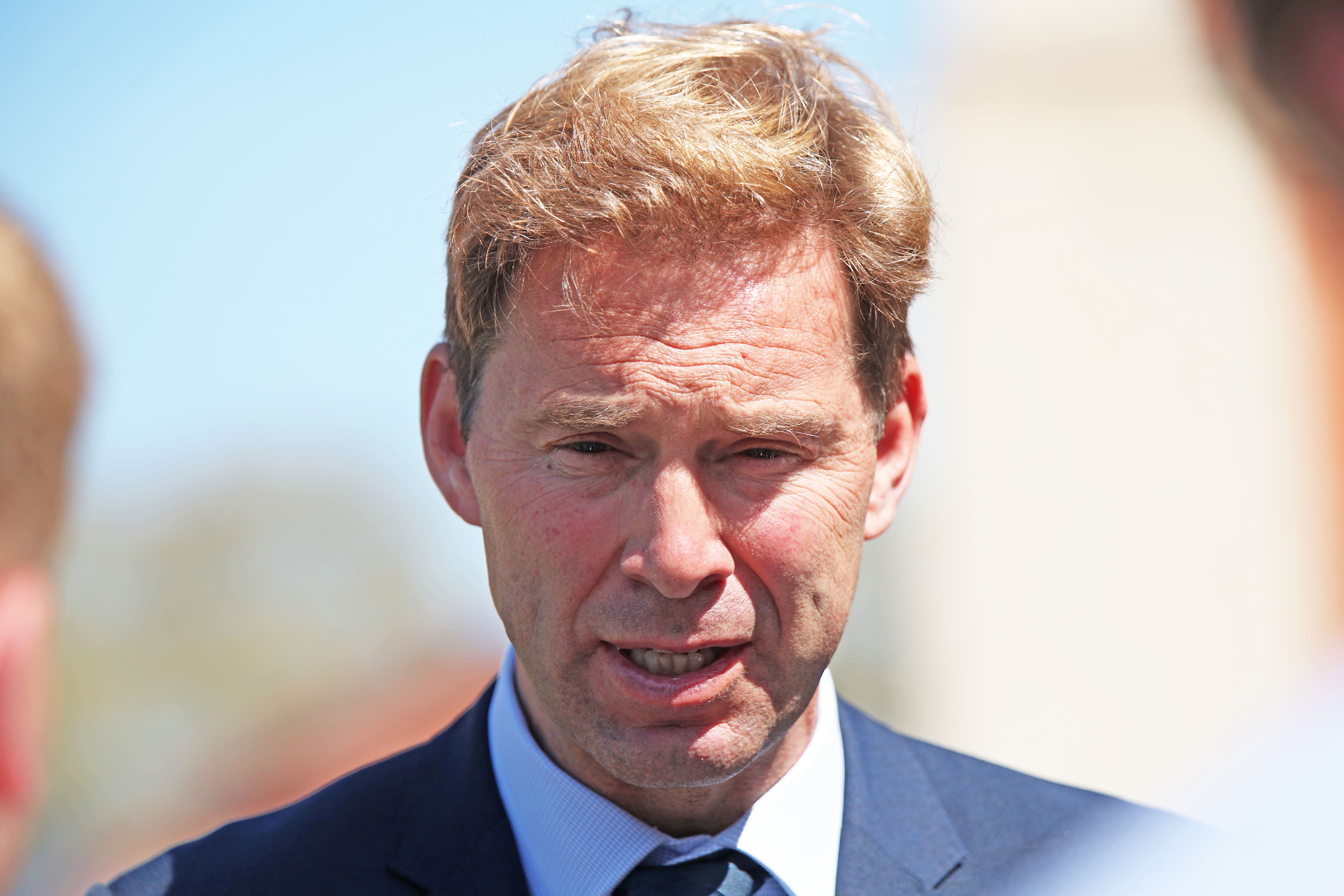Ukraine war a ‘massive wakeup call’ for British Army, say veterans and experts
Rishi Sunak has come under fire from veterans and members of his own party after a US general said the army could no longer defend the UK
Your support helps us to tell the story
From reproductive rights to climate change to Big Tech, The Independent is on the ground when the story is developing. Whether it's investigating the financials of Elon Musk's pro-Trump PAC or producing our latest documentary, 'The A Word', which shines a light on the American women fighting for reproductive rights, we know how important it is to parse out the facts from the messaging.
At such a critical moment in US history, we need reporters on the ground. Your donation allows us to keep sending journalists to speak to both sides of the story.
The Independent is trusted by Americans across the entire political spectrum. And unlike many other quality news outlets, we choose not to lock Americans out of our reporting and analysis with paywalls. We believe quality journalism should be available to everyone, paid for by those who can afford it.
Your support makes all the difference.The Ukraine war should provide a “massive wakeup call” for how the government looks to fund the British Army, former soldiers and military historians have warned amid criticism over its ability to defend the UK and its allies.
Rishi Sunak has come under fire from veterans and members of his own party after a US general said the army could no longer defend the UK. The army is currently 76,000 strong but would shrink to 73,000 if downsizing plans go ahead. It is already half the size it was in 1990 and the smallest it has been since Napoleonic times.
Former soldier Hamish de Bretton-Gordon, a British Army officer from 1988 to 2012, told The Independent: “We thought the artillery was in good shape but that was before the Ukraine conflict, a lot of money was spent. But having been playing Star Wars [with focus on cyber and space security] the Ukraine war has shown that to be successful on the battlefield you need to focus on that.
“Our own situation has become rather bleak. When I joined the army in 1988 we had four divisions but I have heard it is about 80 per cent [less than that] now. Our greatest defence has been the water around us but being part of Nato means we cannot just sit back … I heard giving 14 tanks to Ukraine would be detrimental to our own forces when we had hundreds ten years ago. This should be a massive wake-up call.”
Historian Dr Simon Anglim said he has spoken to serving personnel who have “expressed dissatisfaction” with the state of affairs, with the number of British Army tanks - for instance – set to be reduced from 800 in the Cold War to potentially as low as 148.
“I think we came to this point from a combination of under-investment and decision-makers with muddled priorities,” he said.
“Our Challenger tanks are clapped out now, as the Ukraine army might be about to discover. Our Scimitar light tanks have been in service since the late 1960s.
“In my own opinion, the British Army needs to decide what it wants to be. Does it want to be a key part of Nato or a faster, lighter and operating globally?”
Another former British soldier, Nicholas Drummond, said: “Shortage of soldiers is no surprise given the reduction in headcount since 2010. Shortfall in performance is about the army no longer having sufficient heavy armour assets to conduct combined arms manoeuvres in partnership with our key Nato allies. Challenger 2, AS90 and Warrior should have all been upgraded before 2010, but it didn’t happen.

“The loss of capability is the result of two things: The army being starved of cash for 42 years, and the army’s inability to spend the limited cash it does have in such a way as to deliver key programmes.”
The feeling has been felt to the top. Tobias Ellwood, chairman of the Defence Select Committee, said: “We need to invest in cyber and space security as this is the new advance in the character of conflict but we should not do it at the cost of your land forces.
“Our army is simply too small. We have cut down by 10,000 troops. I do hope the defence review will look at these issues and reverse some of the cuts that were made a couple of years ago.”
A government spokesperson said: “The prime minister is clear that we have to do everything necessary to protect our people, which is why the UK has the largest defence budget in Europe and we made the biggest investment in the UK defence industry since the Cold War in 2020.

“We are ensuring our armed forces have the equipment and capability they need to meet the threats of tomorrow, including through a fully-funded £242 billion 10-year equipment plan.”




Join our commenting forum
Join thought-provoking conversations, follow other Independent readers and see their replies
Comments